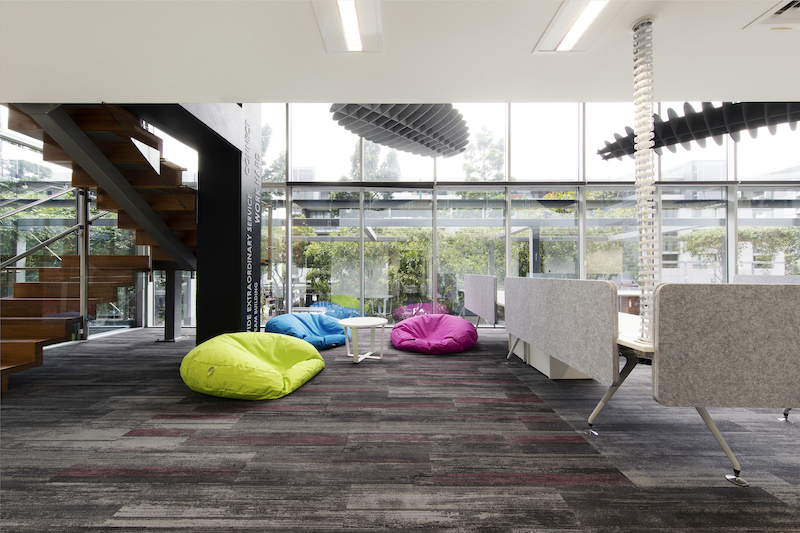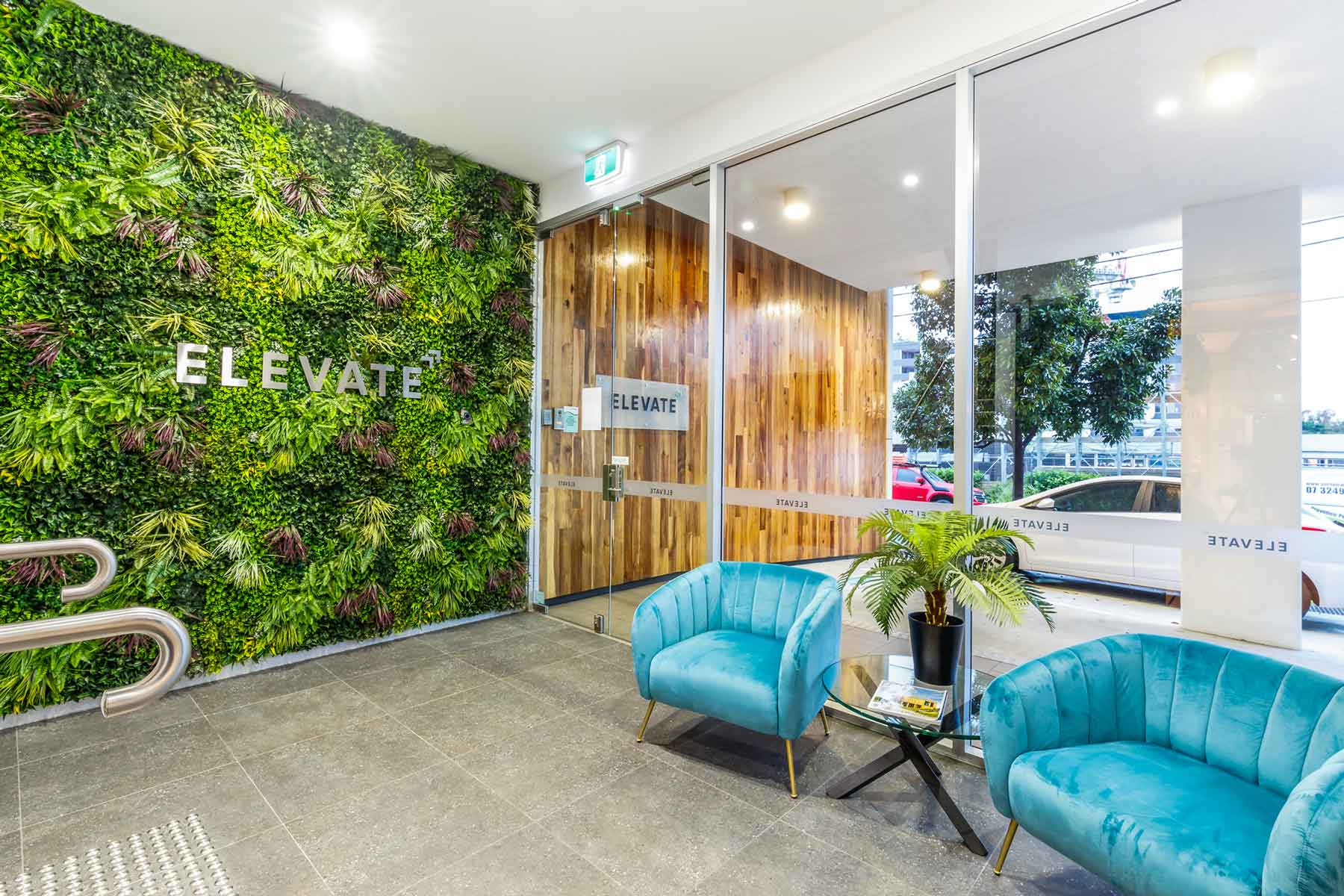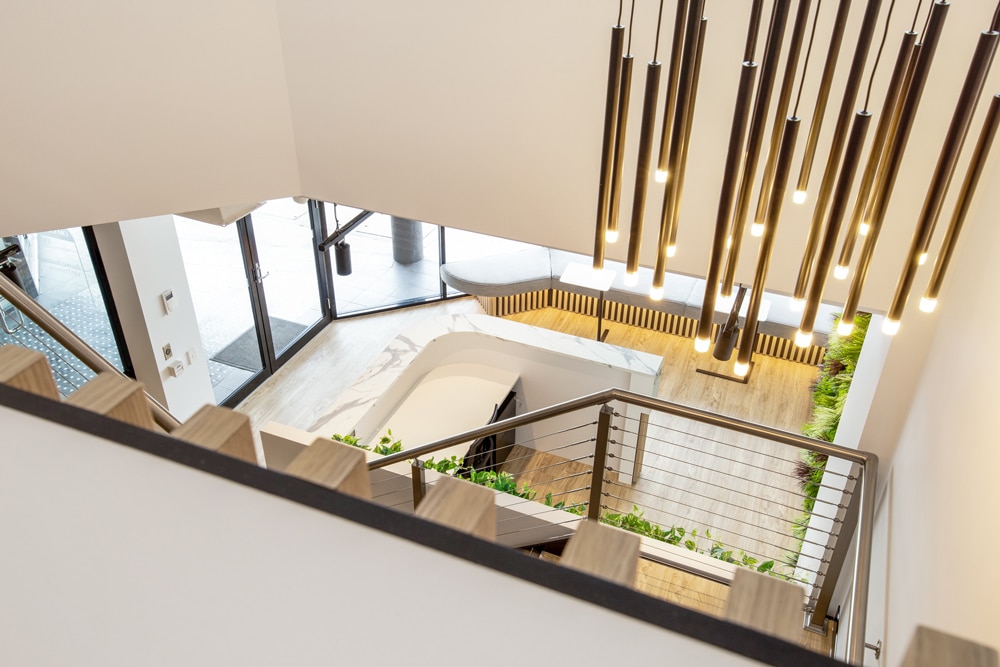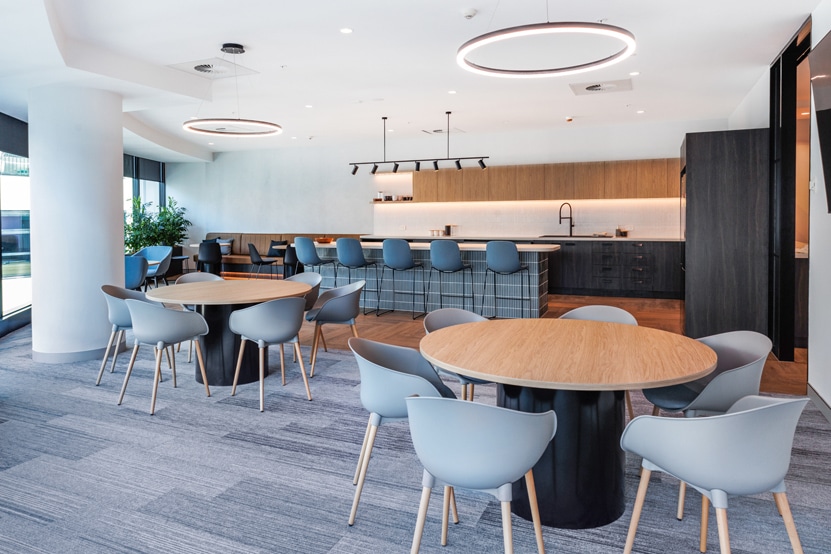With talent retention and productivity forefront of mind, modern office design is now heavily influenced by a “resimercial” approach.
A combination of residential and commercial design principles, the “resimercial” trend has a singular focus on enhancing workplace wellbeing.
The strategy has gained particular momentum in the past two years as workplaces seek to address a number of challenges including talent shortages and the increasing expectations of workers wanting hybrid and flexible working conditions.
In the scenario of the past two years, talent attraction and retention has become increasingly competitive and employee expectations are also changing. Workplaces are now understanding the influence of commercial interior design in creating attractive and productive office environments.
Strategies for implementing the “resimercial” design approach include:
Welcoming material selections

Soft textiles, comfortable seating, artwork and relaxed, less structured breakout spaces are important for fostering an environment that’s equally as appealing as a home office. Breakout zones with bean bags or cosy nooks ripe for tea breaks are positive spaces for fostering wellbeing while at work.

Greenery and biophilic design

Employees that work within biophilic environments tend to feel more content, motivated and connected to their office environment. Plants and greenery provide positive psychological effects and play an important role in the resimercial approach. From green walls to hanging plants, introducing biophilic design is a great way to foster calm, clear thinking in the office.

Layered lighting

Lighting is such an important component for both residential and commercial design, so it makes sense that the “resimercial” approach blends the best of both worlds. Layered lighting sees practical task lighting in areas such as workstations and kitchens while ambient lighting also takes centre stage to create a sense of mood and relaxation in other workplace spaces.
Spaces to foster social connections, relaxation and fun

Comfortable facilities such as tea rooms and bathrooms are essential for ensuring employees have safe, welcoming spaces separate from their workstations. Additional coffee stations and social hubs create a sense of connection, fun, relaxation and belonging amongst employees.

Agile spaces and furniture

Flexible spaces and furniture that can be reconfigured by the user will boost social connectivity, collaboration and productivity. It’s also an economical approach to ensure the organisation can maximise how spaces are used and function.
To see how a resimercial design influence could enhance your workplace environment, contact us here.

